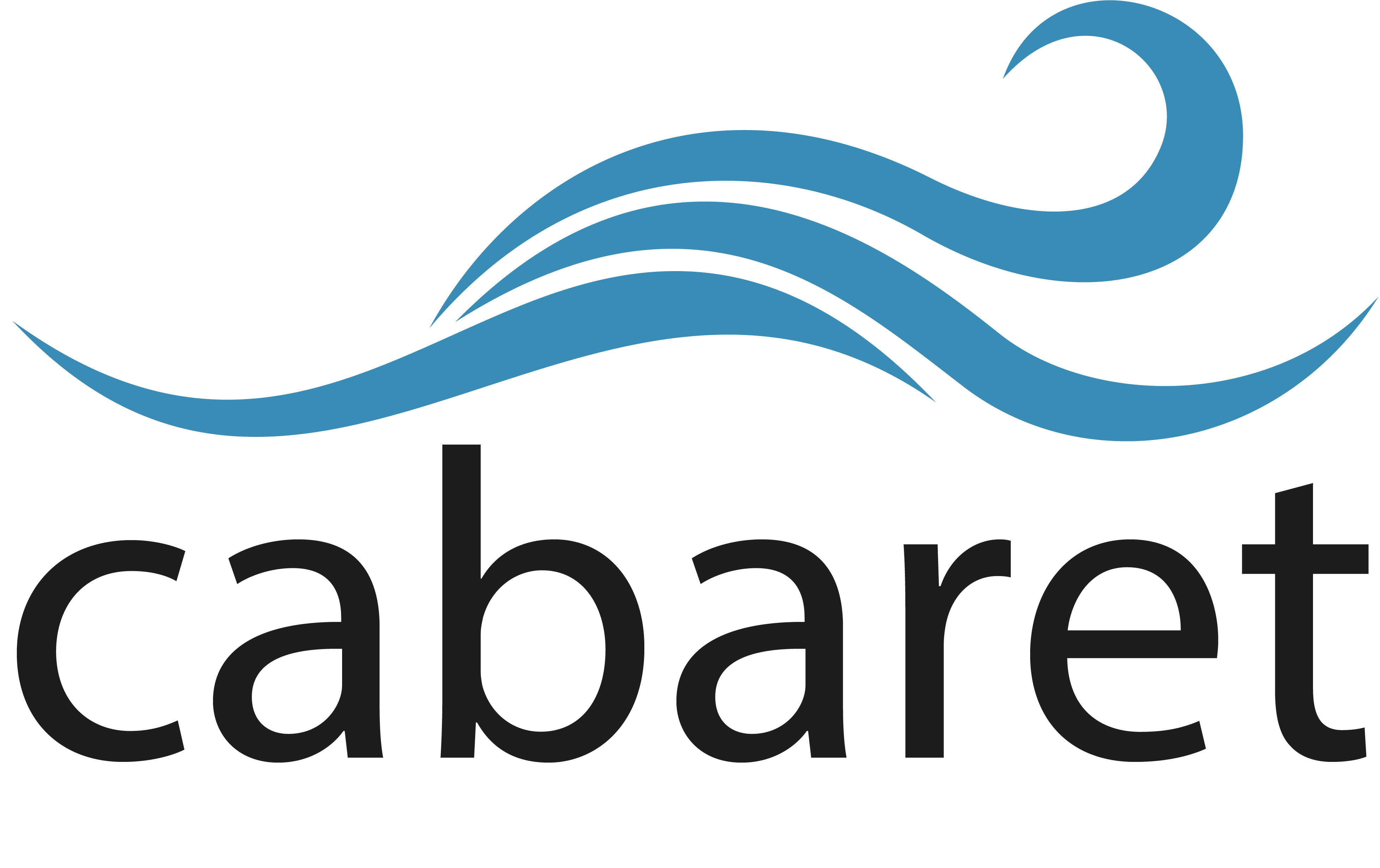News
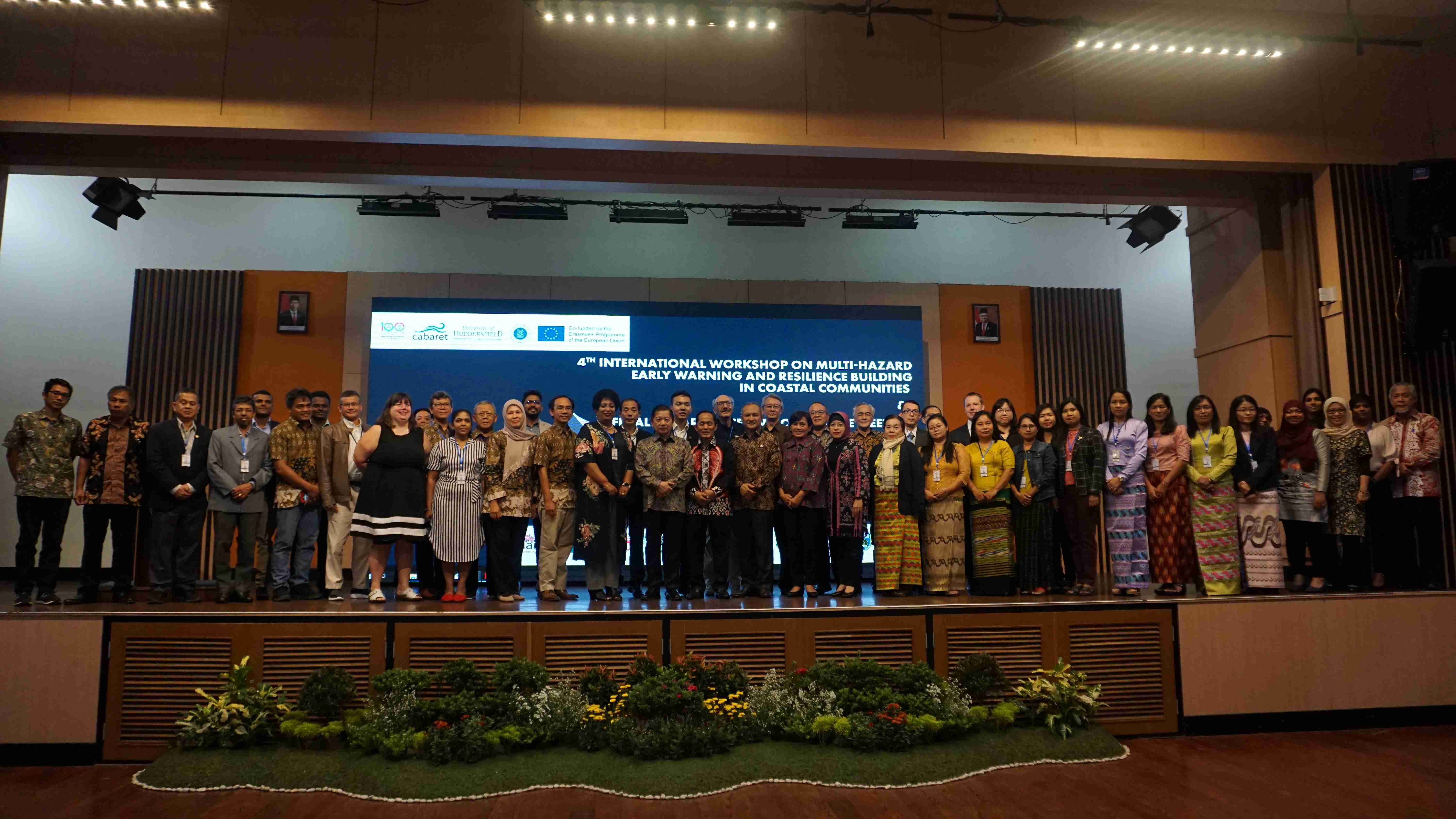
More than 70 participants representing practitioners, politicians, policymakers and scientists from 15 Higher Education Institutes (HEIs) from Asia and Europe participated at the Fourth International Conference on MHEW and Coastal Resilience and the Final Steering Committee Meeting of the project CABARET. The event was held between 6th and 10th January 2020. This five-day workshop and the meeting was hosted by the Institute of Technology Bandung, Bandung in Indonesia (ITB). ITB is situated in the city of Bandung, which is located in the capital of West Java province in Indonesia.
The visit of the CABARET team coincides with the events to mark ITB’s 100 year anniversary. The European Commission's support for the production of this publication does not constitute an endorsement of the contents which reflects the views only of the authors, and the Commission cannot be held responsible for any use which may be made of the information contained therein. The event opened with a welcome address by the lead investigator from the host institution, Dr Harkunti Rahayu from the Institute Technology Bandung, Indonesia.
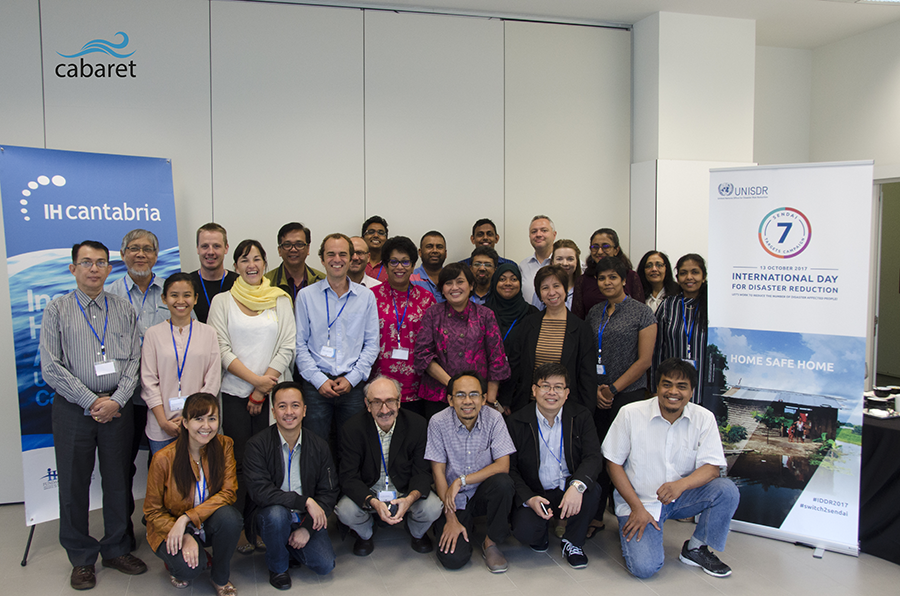 CABARET partners will be supporting the International Day for Disaster Reduction. The United Nations General Assembly has designated 13 October as the date to celebrate International Day for Disaster Reduction (IDDR) to promote a global culture of disaster reduction, including disaster prevention, mitigation and preparedness. Accordingly, they have made plans to take initiatives through the project CABARET to achieve this year's target of reducing the number of affected people by disasters by 2030.
CABARET partners will be supporting the International Day for Disaster Reduction. The United Nations General Assembly has designated 13 October as the date to celebrate International Day for Disaster Reduction (IDDR) to promote a global culture of disaster reduction, including disaster prevention, mitigation and preparedness. Accordingly, they have made plans to take initiatives through the project CABARET to achieve this year's target of reducing the number of affected people by disasters by 2030.
Info: www.unisdr.org/we/campaign/iddr
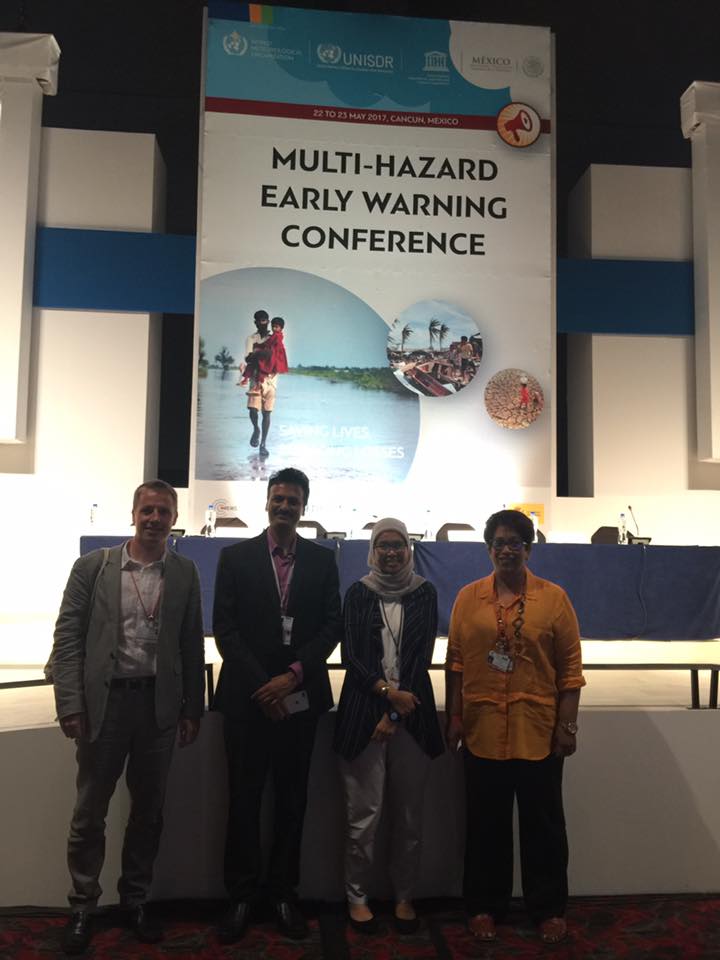 Professors Richard Haigh and Dilanthi Amaratunga also actively took part at the Multi-Hazard Early Warning Conference which aimed to demonstrate to countries how they can build, improve the availability of, and their communities’ access to, multi-hazard early warning, risk information and assessment. This conference was held from 22 to 23 May in Cancún, Mexico, hosted by the government of Mexico, in connection with the United Nations Office for Disaster Risk Reduction (UNISDR) Global Platform for Disaster Risk Reduction.
Professors Richard Haigh and Dilanthi Amaratunga also actively took part at the Multi-Hazard Early Warning Conference which aimed to demonstrate to countries how they can build, improve the availability of, and their communities’ access to, multi-hazard early warning, risk information and assessment. This conference was held from 22 to 23 May in Cancún, Mexico, hosted by the government of Mexico, in connection with the United Nations Office for Disaster Risk Reduction (UNISDR) Global Platform for Disaster Risk Reduction.
The Global Platform was attended by more than 6,500 delegates, including Heads of State, leading politicians, the event – organised by UNISDR (the United Nations Office for Disaster Risk Reduction) – is the world’s foremost gathering of stakeholders committed to reducing disaster risk and to building the resilience of communities and nations.
CABARET was presented in a poster session aimed at reflecting good practices, practical experience and innovation in line with the objectives of the Conference.The two professors also had bi-lateral meetings with Sirinivasa Kumar Tummala, Head of the Intergovernmental Coordination Group for the Indian Ocean Tsunami Warning and Mitigation System Secretariat (ICG/IOTWMS), about continuing their collaborations as part of the EU funded Erasmus+ project CABARET, which aims to build capacity for regional multi-hazard early warning.
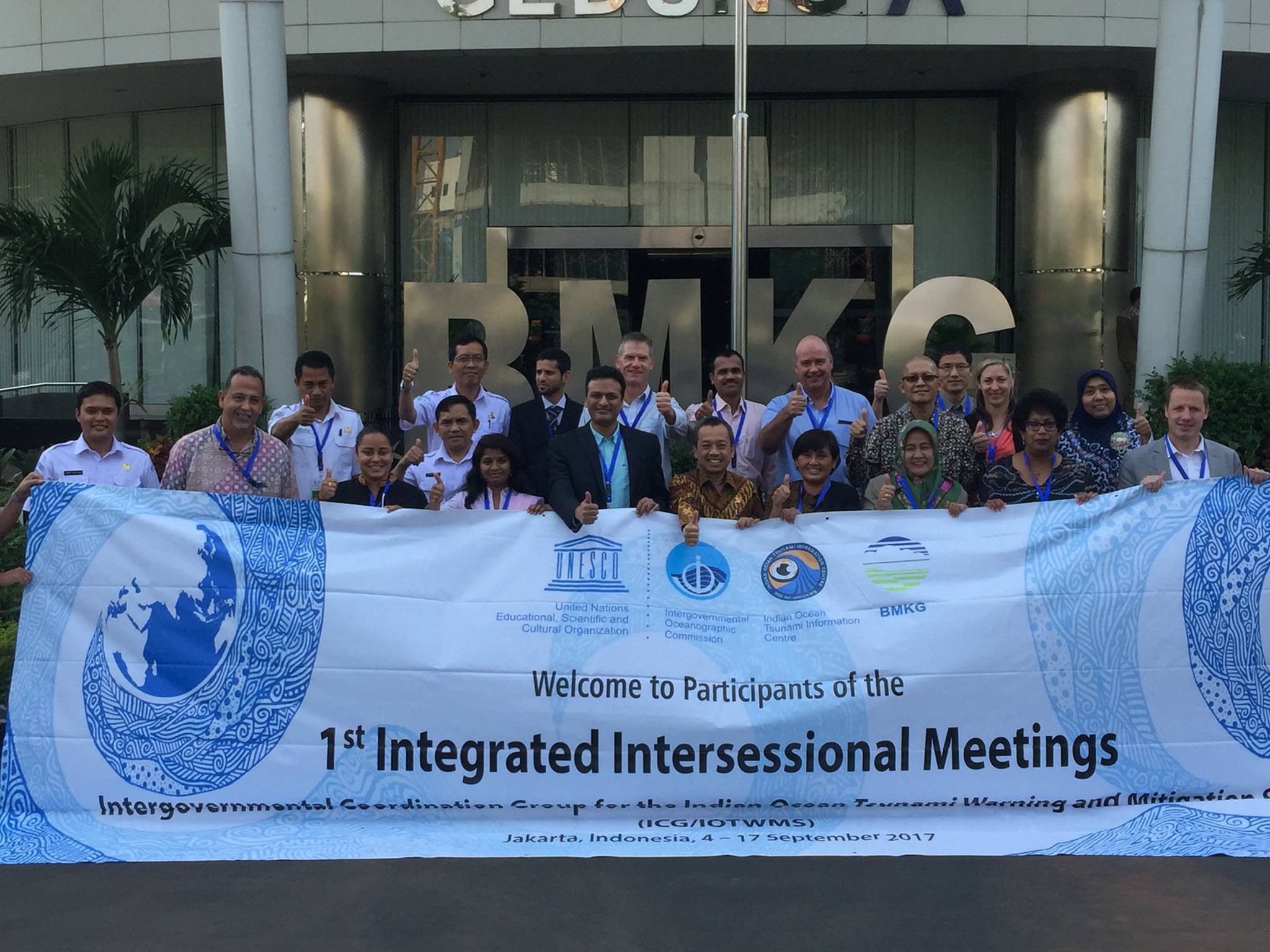 Dr Harkunti Rahayu, Professor Richard Haigh and Professor Dilanthi Amaratunga, from the CABARET consortium, recently attended the first meeting of the Task Team Capacity Assessment of Tsunami Preparedness (TT-CATP). The meeting took place alongside the Intergovernmental Coordination Group for IOTWMS 1st Integrated Intersessional Meetings in Jakarta, Indonesia, September 2017.
Dr Harkunti Rahayu, Professor Richard Haigh and Professor Dilanthi Amaratunga, from the CABARET consortium, recently attended the first meeting of the Task Team Capacity Assessment of Tsunami Preparedness (TT-CATP). The meeting took place alongside the Intergovernmental Coordination Group for IOTWMS 1st Integrated Intersessional Meetings in Jakarta, Indonesia, September 2017.
The TT-CATP has been tasked with reviewing existing questionnaires and national reports, developing suitable questionnaires, and guiding implementation of an online baseline survey for capacity assessment of tsunami preparedness in the Indian Ocean region. It will also develop guidelines and an implementation plan for piloting a Tsunami Ready programme in the Indian Ocean.This will include identifying communities in one or two countries for pilot implementation, based on outcome of capacity assessment survey and interest of the Member States.
Dr Rahayu chairs the TT-CATP, and Professors Haigh and Amaratunga have been invited to join the TT-CATP as external experts. It was agreed at the meeting that TT-CATP will refer to the results of CABARET capacity analysis surveys to inform the capacity assessment of tsunami preparedness for the IOTWMS member states.
TT-CATP will also explore the possibility of utilising the online training being developed through CABARET for meeting the capacity development needs of the IOTWMS member states. This is a major opportunity for the CABARET project to reach key target stakeholders of the project. The CABARET project will be working closely with Dr Rahayu to align the workplan with the needs to the TT-CATP, thereby greatly increasing the potential impact of the project.
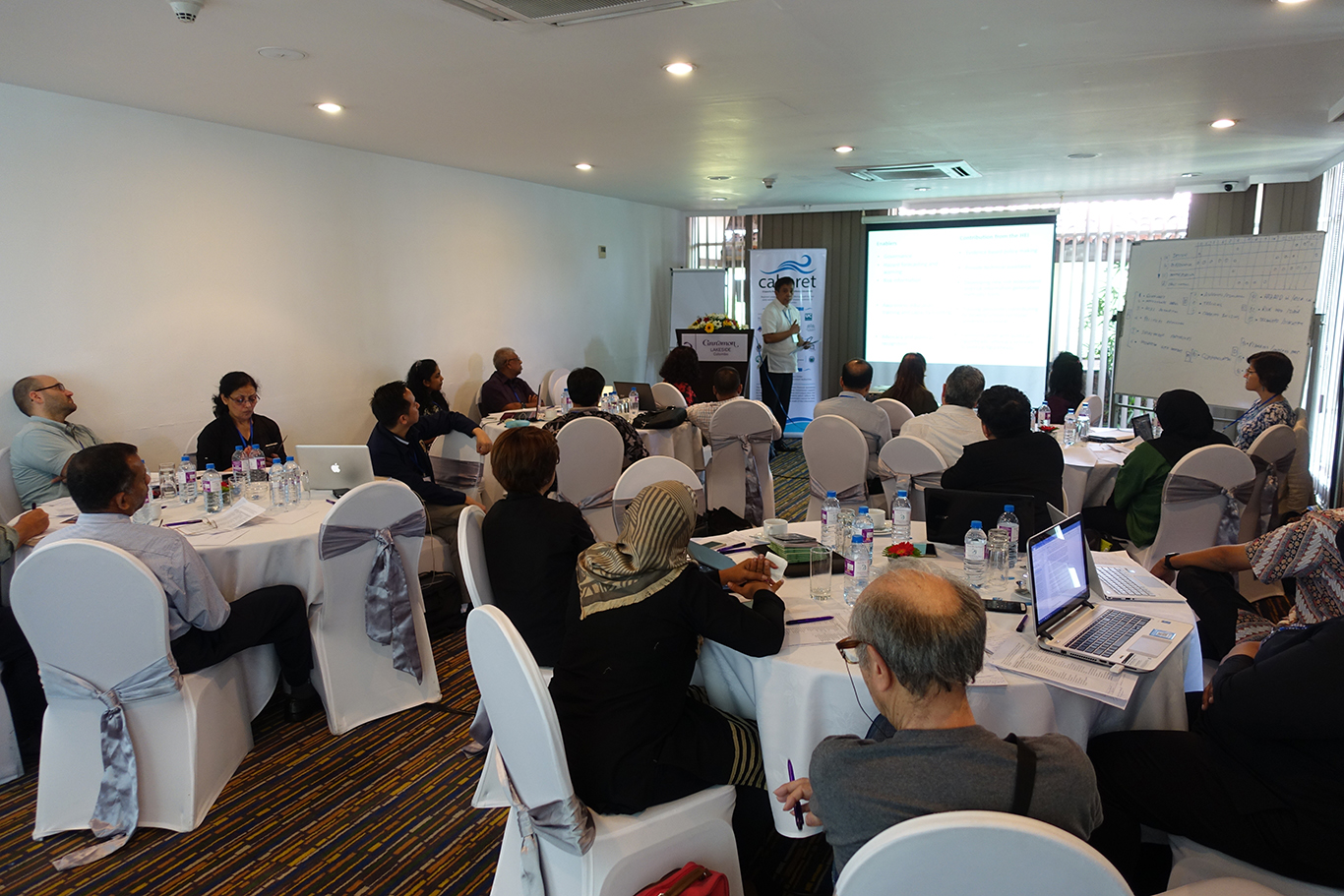 Experts from across Europe and Asia met in March 2017 in Colombo, Sri Lanka, to launch a new project funded by the European Union to foster regional cooperation for more effective multi-hazard early warning and increased disaster resilience among coastal communities.
Experts from across Europe and Asia met in March 2017 in Colombo, Sri Lanka, to launch a new project funded by the European Union to foster regional cooperation for more effective multi-hazard early warning and increased disaster resilience among coastal communities.
The project CABARET kick-off meeting was held in Colombo, Sri Lanka from 27th to 30th March 2017 with more than 30 participants from Europe and Asia representing Higher Education institutions.
